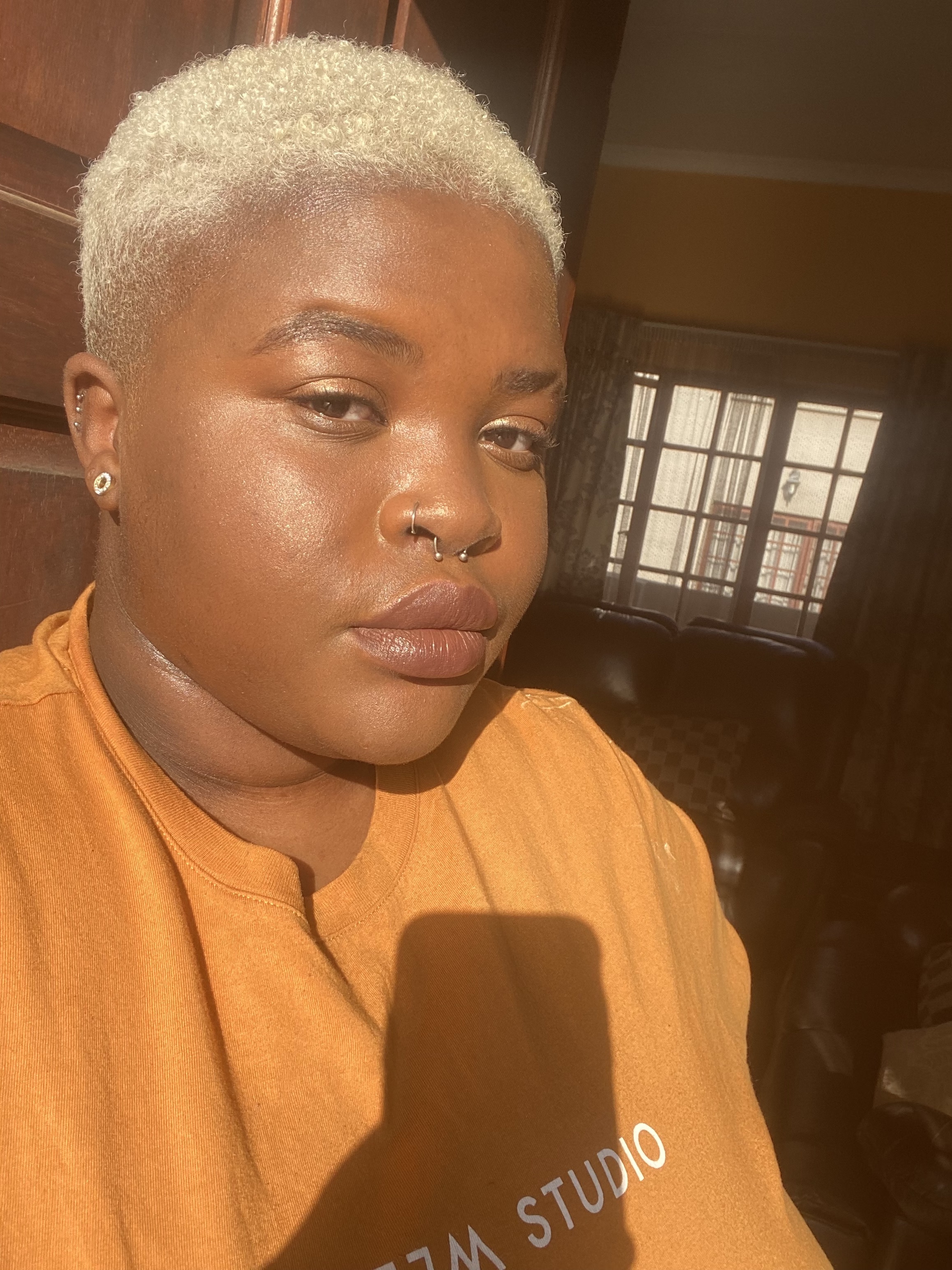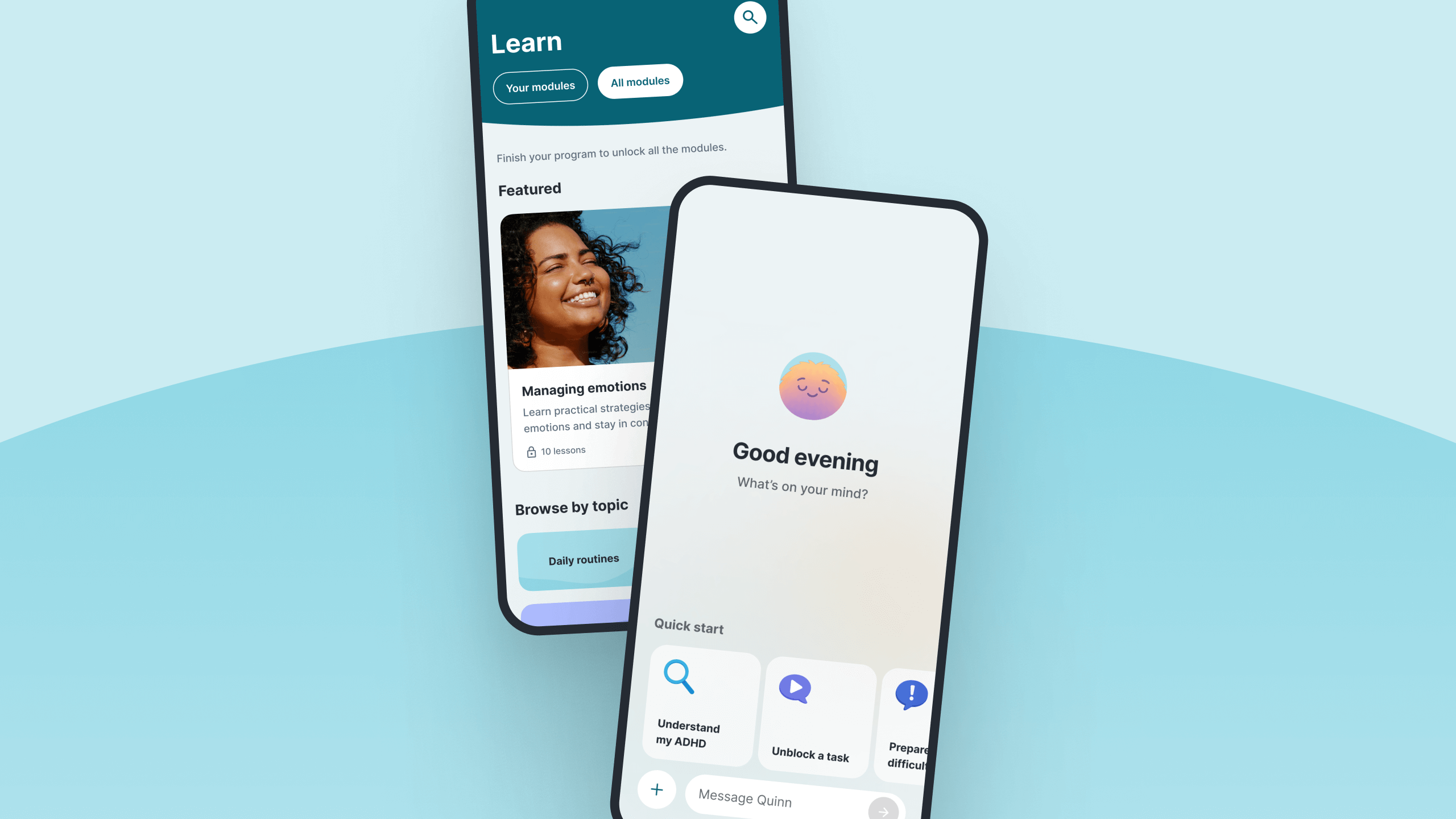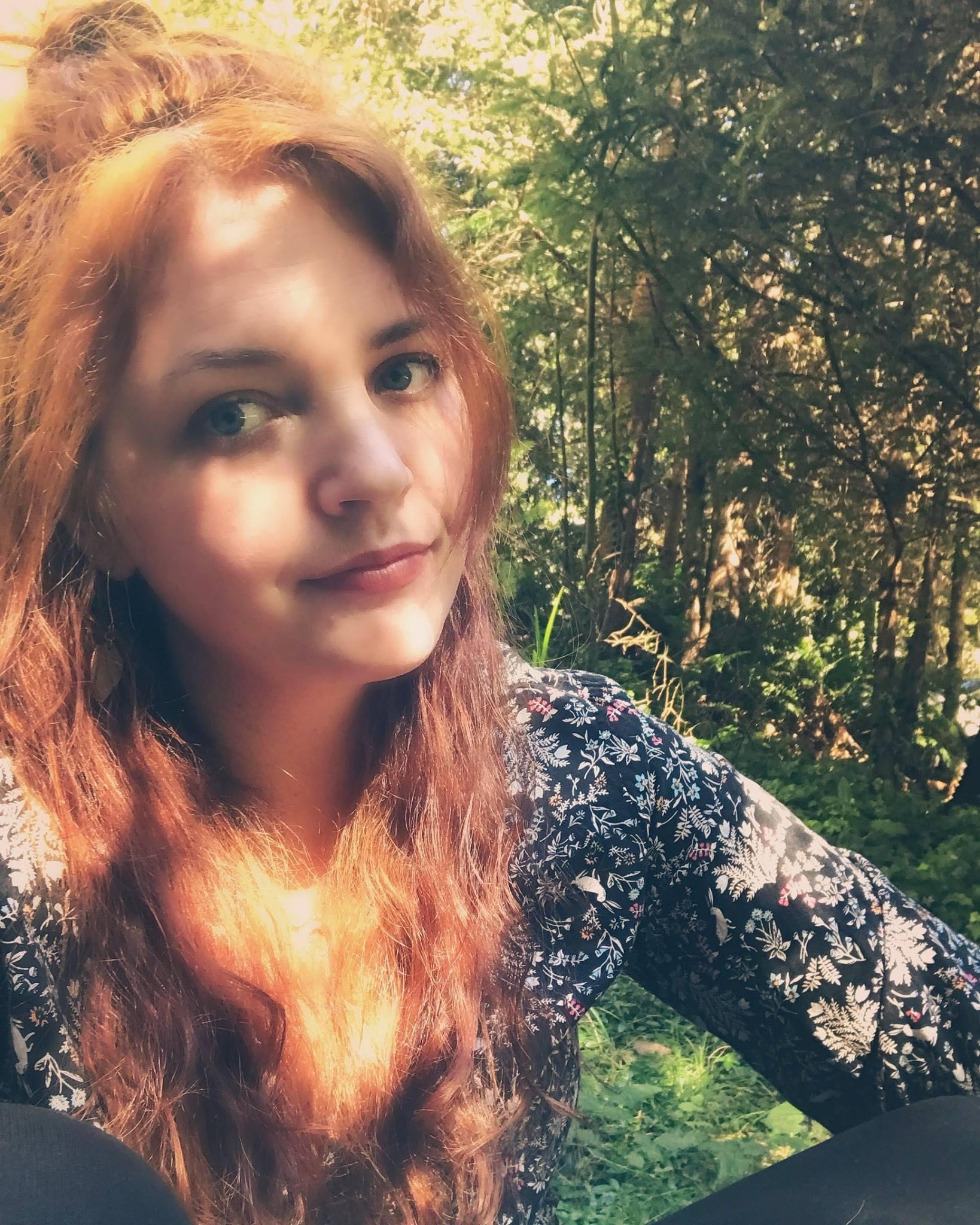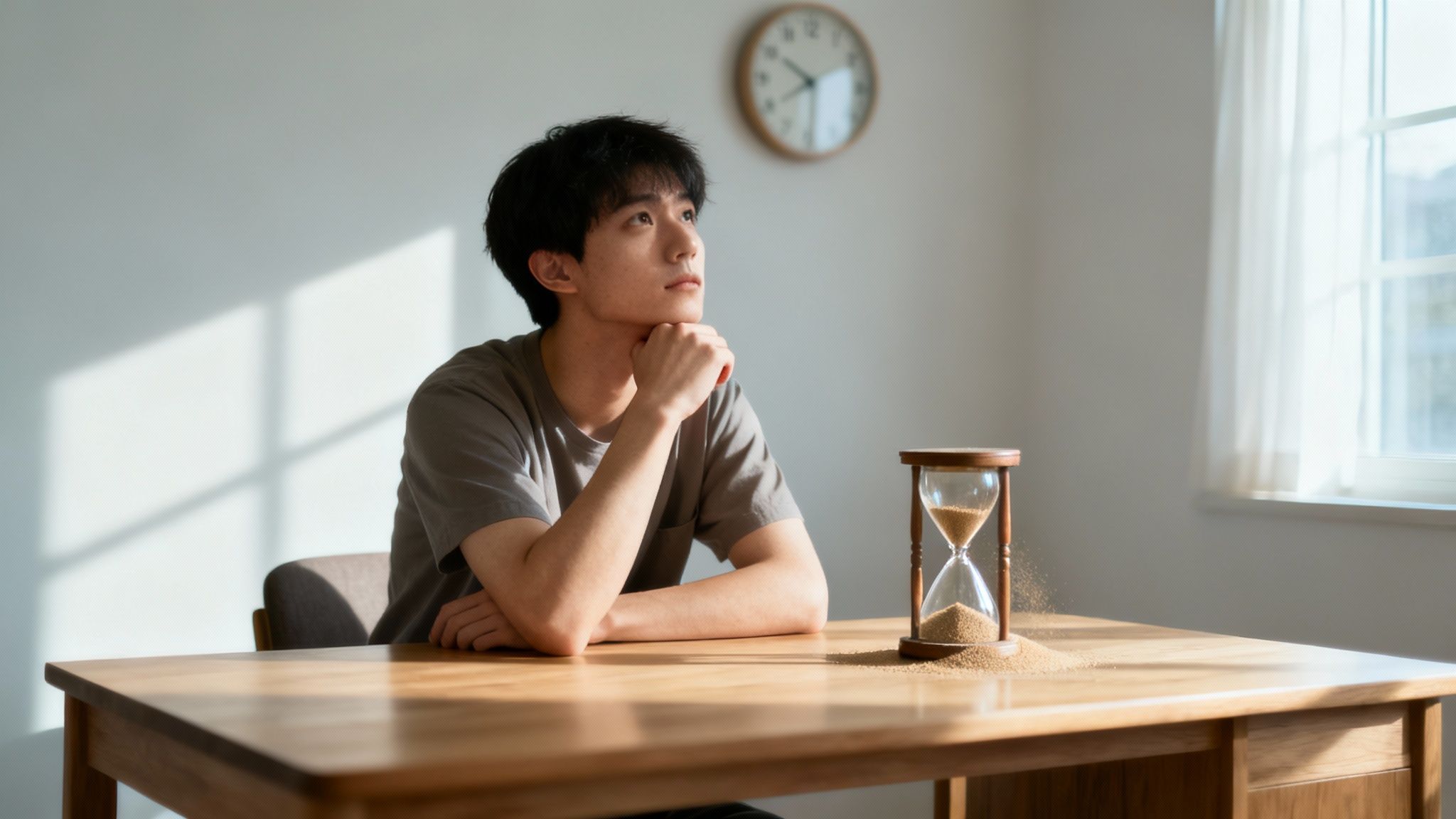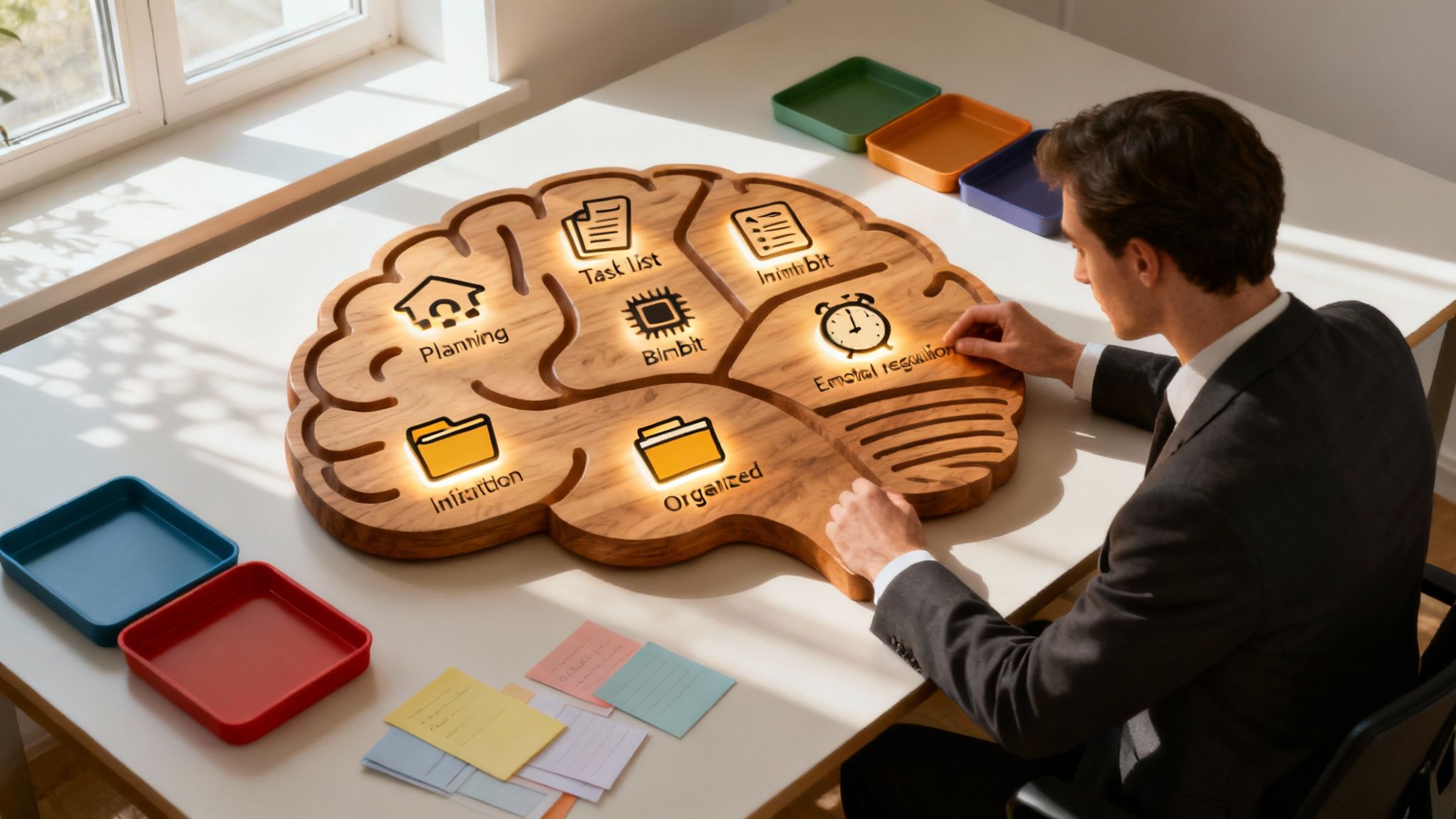Is rejection this unpleasant for everyone?
This is something I asked myself pre-diagnosis when I wondered why I felt things so viscerally. I’d always been told I was “too sensitive”—and I used to believe it. To cope, I would shut down and avoid situations that made me feel vulnerable.
That’s why I had an Aha! moment when I learned about rejection sensitive dysphoria (RSD)—I finally understood that my intense emotional sensitivity to rejection isn’t a universal feeling felt by everyone, but a mental health challenge specific to ADHD. While my days of shutting down are mostly behind me, I wish I’d learned about RSD sooner.
You might relate to my story if you are—or suspect you are—neurodiverse. The good news is that learning more about rejection sensitivity may help you understand why these sudden, intense feelings emerge, and why they're so hard to control.
Read on to learn more about what RSD is, what causes it, and how to manage it.
Too long; didn’t read
- Rejection sensitive dysphoria can affect anyone, but it’s especially common in adults with ADHD, autism, or both 2
- RSD causes an overwhelming emotional and/or physical response to criticism, rejection, or feelings of inadequacy 3
- RSD is mainly characterized by the intense emotional responses to the mere perception of criticism, rejection, etc. (i.e. you anticipate it before it happens)1
- By the age of 12, kids with ADHD are already conditioned to anticipate negative interactions with others8
- There is no cure for RSD, but several treatment methods and coping strategies may alleviate symptoms
Rejection sensitive dysphoria
RSD is characterized by a heightened emotional sensitivity to perceived or real rejection.1 For some, this overwhelming feeling can also include physical pain or discomfort.
Anyone can experience symptoms of RSD, but it’s most common among individuals with ADHD and/or Autism.2
What’s the difference between rejection sensitivity and rejection sensitive dysphoria?
People who experience rejection sensitivity usually share the characteristic of being hypervigilant to signs of rejection, judgment, or criticism.3
In contrast, RSD refers to a conditioned emotional response that’s prematurely triggered by the perception of rejection. And of course, someone with RSD also has rejection sensitivity.
While there is significant overlap, rejection sensitivity is thought to be a possible precursor to RSD.
What causes RSD?
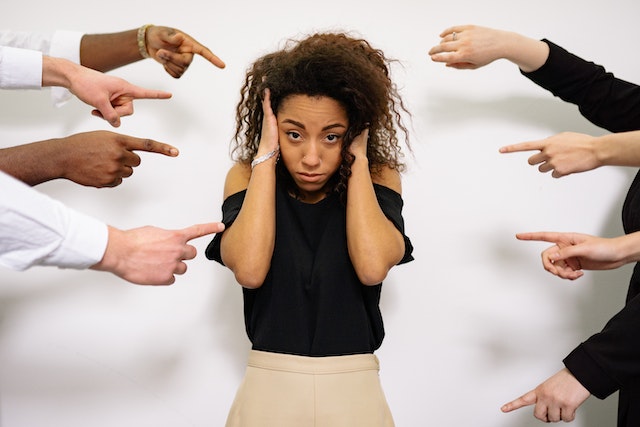
The cause of RSD is still being investigated, but emotional dysregulation (the inability to effectively process and express emotions4) has been thought of as a potential cause.
Other causes of RSD include trauma and genetic and neurological predispositions. However, there isn’t enough research to inform any confirmation as of yet.
🧠 ADHD research: Up to 70% of adults with ADHD struggle with emotional dysregulation.5
Rejection sensitive dysphoria and ADHD
While RSD and emotional dysregulation aren’t included in the diagnostic criteria as official ADHD symptoms6, preliminary research has started to uncover the link between the two.7
Why are people with ADHD and autism prone to RSD?
🧠 ADHD research: By the time a child with ADHD turns 12, they hear 20,000 more negative, corrective, or critical messages than the average neurotypical child.8 Certainly, this can play a role in how ADHDers learn to anticipate negative interactions with others, a core symptom of rejection sensitive dysphoria.
Autistic individuals may have trouble recognizing social cues and others’ emotional reactions, potentially causing them to have a heightened concern for rejection9, which can develop into RSD.
What does RSD look like?

Disclaimer: Rejection is hard to measure, and RSD isn’t a formal diagnosis yet, so the exact RSD symptoms can be complicated to define.
Common symptoms of RSD:
- Fear of failure; perfectionism
- Low self-esteem
- Rumination
- Social avoidance; social anxiety
- Feelings of hopelessness
- Approval-seeking behavior; people-pleasing
- Emotional outbursts
- Defensiveness
- Anxiety
Related conditions
Similarities between RSD and other conditions can sometimes cause medical practitioners to disregard or misdiagnose RSD as something else.
RSD symptoms can mimic other conditions, like:
- Borderline personality disorder (BPD)
- Bipolar disorder
- Depression
- Post-traumatic stress disorder (PTSD)
- Social anxiety disorder
The effects of RSD
🧠 ADHD research: In William Dodson, M.D.’s article Emotional Regulation and Rejection Sensitivity, he states that 33% of ADHD adults describe RSD as their most impairing symptom, and that most people with RSD become people-pleasers to compensate.
Examples of how RSD may affect you:
- The loss of personal goals (because you anticipate failure anyway)
- Avoiding things that could lead to failure or embarrassment (e.g. competitive events, social events)
- Social withdrawal (i.e. avoiding others physically and digitally—even close friends)
- Not asking for help (because you're embarassed about needing it in the first place)
- Emotional exhaustion from constant pressure to perform (pressure that likely came from your own mind)
How to manage rejection sensitive dysphoria
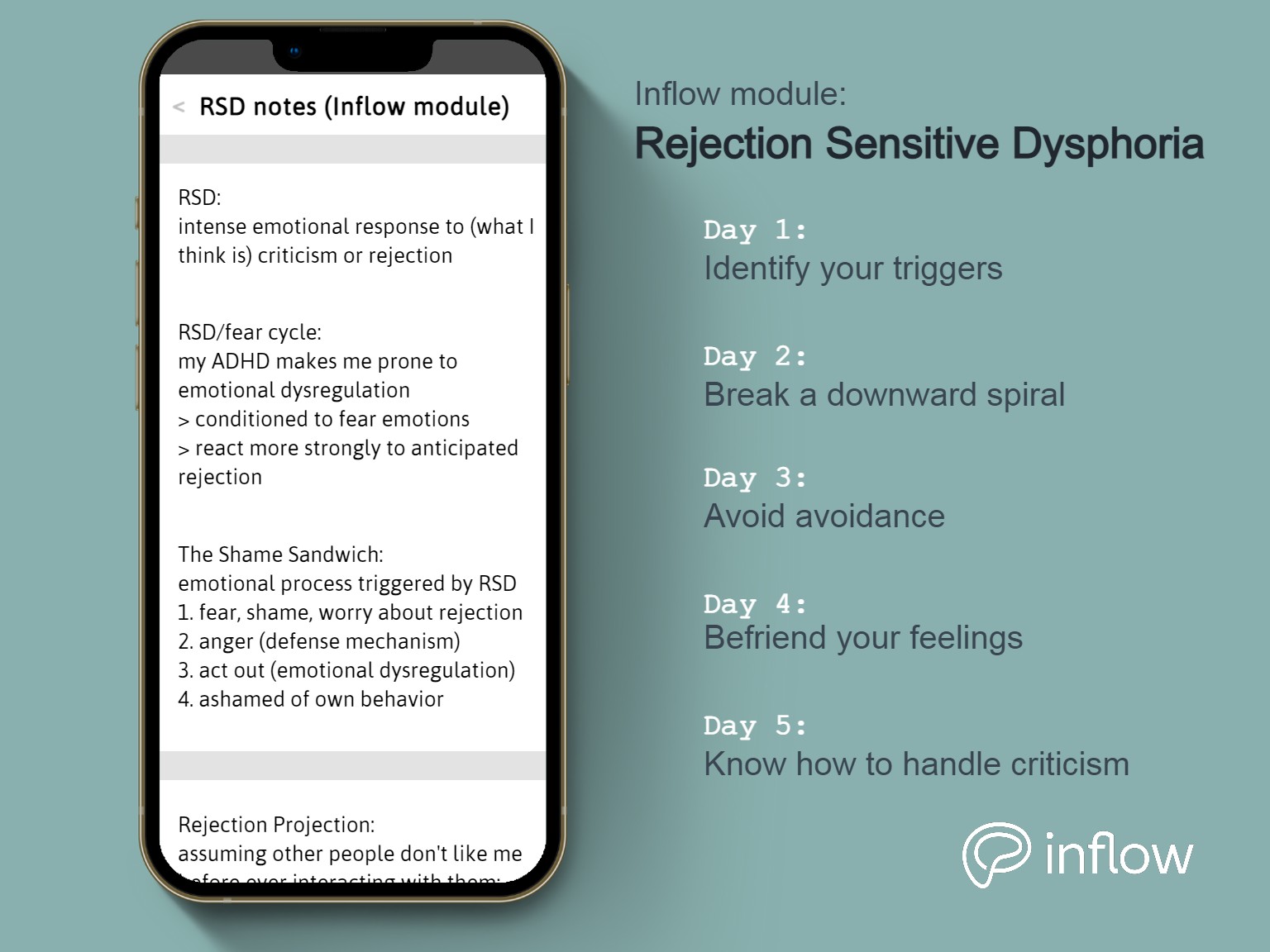
Treatments are available to alleviate RSD symptoms10, but there isn’t a cure for RSD yet. Due to the association of RSD with ADHD, most treatments focus on treating the underlying ADHD symptoms first.
1. Medication
Some medications are effective for RSD. For example, Intuniv (guanfacine) and Kapvay (clonidine) can relieve RSD symptoms by lowering blood pressure.
Parnate (tranylcypromine), can treat the emotional, inattentive, and impulsive symptoms of ADHD, as well as RSD symptoms.
2. Cognitive behavioral therapy
Cognitive behavioral therapy (CBT) is a talk therapy that introduces various techniques that address daily challenges, emotions, and though processes. A licensed CBT therapist can also provide personalized coping strategies.
CBT can help by:
- Improving communication skills
- Introducing conflict resolution techniques11
- Combatting rumination
- Helping you work through other rejection-related issues
👉 You try it! Read up on CBT to determine if this therapeutic method might be a good fit for you.
3. Lifestyle changes
Even making small lifestyle changes may help alleviate the symptoms of RSD.
Other lifestyle changes include:
- Exercise
- Relaxation
- Meditation
- Learning more about RSD
👉 You try it! Check out the rejection sensitive dysphoria module on the Inflow app to learn about RSD - why ADHDers experience it, how it can manifest, and brain hacks on how to cope.
4. Mindfulness
The word “mindfulness” gets a bad rap because it’s often associated with meditation—a skill that requires focus, something many ADHDers struggle with. But mindfulness can be a separate idea.
Mindfulness is simply a state of awareness—of your thoughts, emotions, and reasoning. It’s a healthy way to bring your attention to how you interact with and respond to others (but without judging yourself or ruminating over those interactions and responses.)
👉 You try it! Practice taking an extra moment before responding to situations to ensure you don’t find yourself ruminating over your actions. The R.A.I.N. method might be a good place to start!
Final thoughts
Rejection sensitive dysphoria is one of the most challenging aspects of ADHD, but it’s important to know you’re not alone!
Having a knowledgeable support system can be extremely helpful!
It can be difficult to share mental health struggles, but telling a friend or family member about your experience may help you feel heard and validated. There are also many online communities filled with neurodivergent people that you can join. It helps to know others who are going through the same thing as you!

